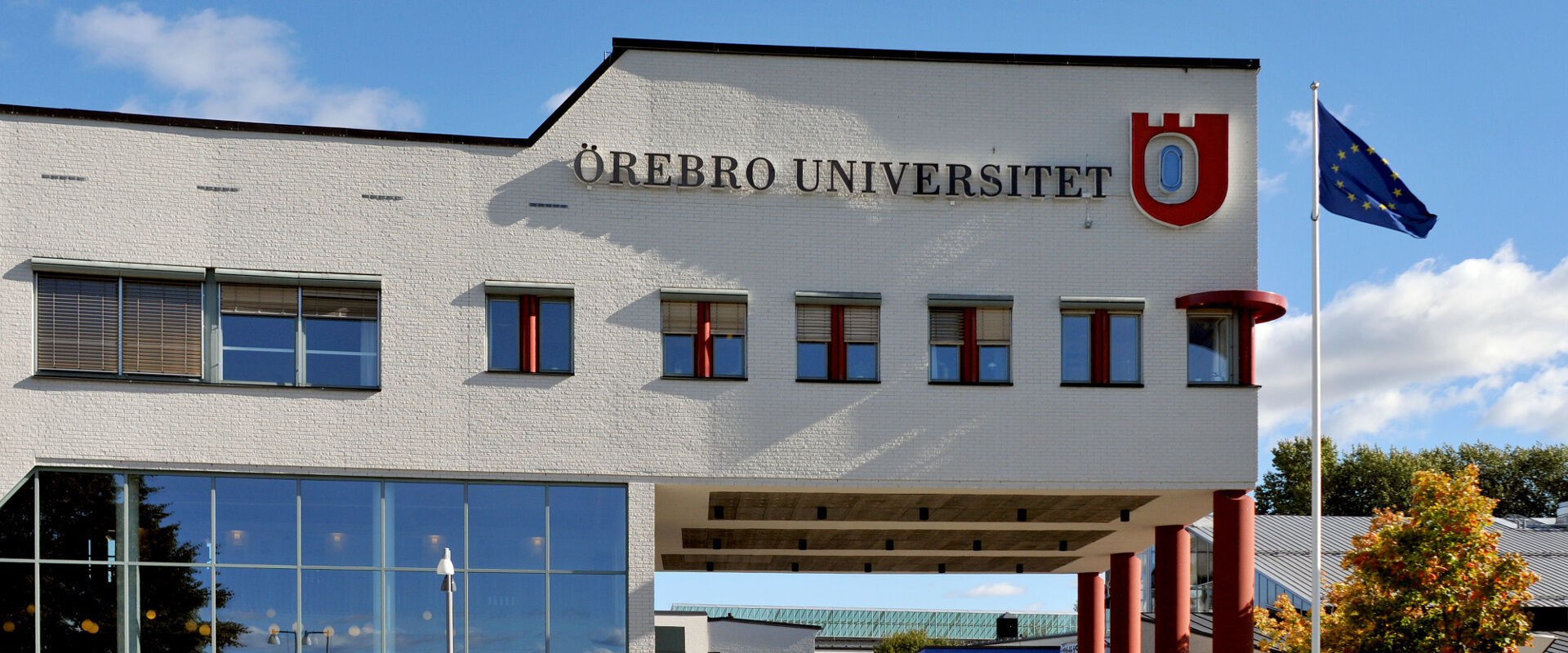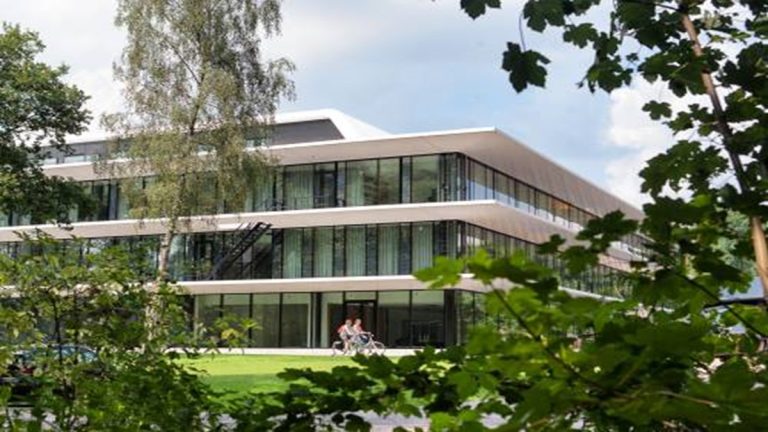
Örebro University and the School of Science and Technology are looking for a doctoral student for the doctoral program in computer science, concluding with a doctoral degree (PhD. in Computer Science).
Start date: Spring 2025
Project description
The research topic for this position is robotic lab automation for handling powdered and granular materials. Robotic lab automation is a major research focus in robotics that is often wrongly thought of as exclusively consisting of grasping, manipulating, and transporting test tubes and beakers which are placed in fixtures and lab machines. An overlooked but equally important task in a lab environment is the handling of powdered and granular chemical substances, which are essential for analytic and production processes. These substances are delivered in containers and processed in chemical reactors from which they must be scooped out for re-packaging, precise dosing, or when cleaning the lab. They can also form clumps, making them heterogeneous, and stick to surfaces, requiring precise scooping actions in constant contact with surfaces that are hidden under the volume of material itself. Handling powdered and granular materials must deal with arbitrarily shaped volumes of material in contact with hidden surfaces that can have complex geometry. To plan and execute efficient scooping actions, we need to perceive and understand the shape and dynamics of the volume of material as well as the hidden surface below it.
The purpose of this project is to enable robotic lab automation for handling powdered and granular materials for material transfer, precise dosing, and cleaning. To accomplish this, we will focus on: (1) Perceiving and modeling powdered and granular material on a hidden surface for scooping from interaction data using, e.g., force-torque and vibratory sensing. (2) Planning and executing scooping actions for efficient material transfer using the models from (1) and generating scooping actions along the hidden surface. (3) Planning and executing scooping actions for precise material dosing using online sensor feedback.
The position will be funded by the Wallenberg AI, Autonomous Systems and Software Program (WASP), which is Sweden’s largest individual research program ever, a major national initiative for strategically motivated basic research, education and faculty recruitment. The program addresses research on artificial intelligence and autonomous systems acting in collaboration with humans, adapting to their environment through sensors, information and knowledge, and forming intelligent systems-of-systems.
The vision of WASP is excellent research and competence in artificial intelligence autonomous systems and software for the benefit of Swedish society and industry.
Read more: https://wasp-sweden.org/
The doctoral student will have the opportunity to use the facilities and collaborate with other researchers and industry partners at WASP Research Arena Robotics as well as using robots and sensor systems available at Örebro University and collaborating universities.
Supervision: The doctoral student will be supervised by J. A. Stork (principal supervisor).
The program and the doctoral studentship
The doctoral program consists of courses and an independent research project that you will present in a doctoral thesis. The program concludes with a doctoral degree and consists of 240 credits, which corresponds to four years of full-time study.
The graduate school within WASP is dedicated to providing the skills needed to analyze, develop, and contribute to the interdisciplinary area of artificial intelligence, autonomous systems and software. Through an ambitious program with research visits, partner universities, and visiting lecturers, the graduate school actively supports forming a strong multi-disciplinary and international professional network between PhD-students, researchers, and industry.
The place on the program is linked to a full-time doctoral studentship for the duration of the study program, which corresponds to four years of full-time study. More information on doctoral studentships, part-time studies and part-time doctoral studentships can be found in the Regulations Handbook. The initial salary for a doctoral studentship is SEK 31 300 a month.
Entry requirements and selection
For admission to doctoral studies, applicants are required to meet both general entry requirements and specific entry requirements. In addition, applicants must be considered in other respects to have the ability required to benefit from the program. For a full account of the entry requirements, refer to the admissions regulations as well as to annex 2 to the general syllabus for computer science.
Applicants meet the specific entry requirements for doctoral studies in computer science if they have been awarded a Degree of Master of Science in Engineering or a one-year Master’s degree from a program within the subject field or related subjects, or if he or she has received a passing grade of at least 120 credits, including an independent project of at least 15 credits, in a main field of study of relevance to the computer science field. At least 30 credits of the 120 credits must have been awarded in the second cycle. A person who has acquired substantially corresponding knowledge, in Sweden or abroad, also meets the specific entry requirements.
A successful applicant should
- be autonomous and show strong and independent problem-solving skills and critical analytical abilities,
- be fluent in spoken and written English,
- possess excellent programming skills,
- have a strong background in mathematics, computer science, machine learning, and robotics.
Experience with autonomous robots, deep learning, and the relevant software frameworks is another valuable merit. Prior knowledge in machine learning, Gaussian processes, probabilistic methods, state estimation, system control, and sensor data processing are beneficial.
Information
For more information about the program and the doctoral studentship, contact J. A. Stork (Johannes.stork@oru.se) or Head of School, Henrik Olsson (henrik.olsson@oru.se).
At Örebro University, we expect each member of staff to be open to development and change; take responsibility for their work and performance; demonstrate a keen interest in collaboration and contribute to development; as well as to show respect for others by adopting a constructive and professional approach.
Örebro University actively pursues equal opportunities and gender equality as well as a work environment characterized by openness, trust and respect. We value the qualities that diversity adds to our operations.
Örebro University is internationally known for its expertise within artificial intelligence and robotics and is involved in a number of high-profile initiatives related to AI (see https://www.oru.se/english/our-profile/ai/). Örebro University is highly active in the relevant European forums and platforms, and several EU-funded research projects. We are a modern, broad-based, and growing university. We endeavor to be an attractive place of work where members of staff feel a sense of pride and satisfaction. Currently, 1,600 employees and 17,000 students come to work and study at Örebro University.
Application to the program and for the doctoral studentship
The application is made online. Click the button “Apply” to begin the application procedure.
For the application to be complete, the following electronic documents must be included:
- Cover letter describing your research interests and how your background fits the position (1 page)
- CV
- Copies of the original certificate and official transcript for Bachelor’s degree
- Copies of the original certificate and official transcript for Master’s degree
- Independent project (degree project)
- Other relevant documents, course and degree certificates verifying eligibility
As a main rule, application documents and attachments are to be written in Swedish, Danish, Norwegian, or English. Certificates and documents in other languages verifying your qualifications and experience must be translated by an authorized translator to Swedish or English. A list of authorized translators can be obtained from Kammarkollegiet (the Legal, Financial and Administrative Services Agency), www.kammarkollegiet.se/engelska/start.
When you apply for admission, you automatically also apply for a doctoral studentship.
More information for applicants will be found on our career site: https://www.oru.se/english/career/available-positions/applicants-and-external-experts/
The application deadline is 2025-03-14. We look forward to receiving your application!
As we have already made our choices in terms of external collaboration partners and marketing efforts for this recruitment process, we decline any contact with recruitment agencies and advertisers.
As directed by the National Archives of Sweden (Riksarkivet), we are required to deposit one file copy of the application documents, excluding publications, for a period of two years after the appointment decision has gained legal force.



